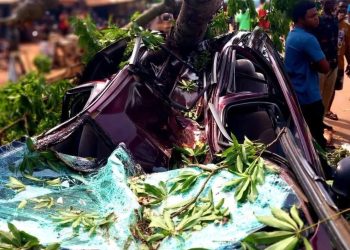*I’ll return varsities to states – Atiku
*I’ll end impunity by leaders – Obi
*Lagos-Borno wonders coming – Tinubu
Nigerians were on Monday treated to an appetiser of what to expect in 2023, as the leading presidential candidates in next the 2023 general election, spoke on how they would address the myriads of problems currently besetting the country.
Atiku Abubakar, former Vice President and presidential candidate of the Peoples Democratic Party (PDP), Peter Obi, his Labour Party (LP) counterpart and Ahmed Bola Tinubu, of the All Progressives Congress (APC), who was represented by Alhaji Kashim Shettima, his running mate, spoke as the panelists at the 62nd edition of the 2023 edition of the annual conference of the Nigeria Bar Association (NBA).
Atiku, told the large gathering of lawyers and prominent Nigerians that he would make the financial burdens of the Federal Government lighter by shifting many of its current responsibilities to the other tiers of government and limit those it would handle in line with the dictates of true federalism.
One of the immediate issues that would be given to the state is the of running universities.
Atiku, who, as the VP between 1999 and 2007, when former President, Olusegun Obasanjo was in office, said that the measure would permanently cure the incessant industrial actions by university lecturers in the country.
Speaking against the backdrop of the current strike by the Academic Staff Union of Universities (ASUU), which has seen federal universities closed for the last six months, Atiku, said at the event that the Federal Government did not have infinite resources to tackle the type of burdens entrusted on its shoulders.
His words: “The only way is to make sure that you make conducive environment available to both foreign and local investors to participate in our country, whether it is infrastructure, whether it is education, whether it is power.
“I had an argument with a university professor from Federal University, Lokoja. He said he read in my policy document that I intended to devolve, in other words, to return education to the states. How dare I do that? I said, ‘Mr Professor, do you realise that the first set of our universities belonged to the regional governments?
“He said, ‘Yes.’ I said who are the successors of the regional government? He said the states.I said the children you send to America, to England, who owns those universities? Mostly the private sector. So, why is it that you think we cannot do it here? We don’t have the money.”
Obi, who had consistently heaped the blame for the parlous state of affairs in Nigeria on poor leadership and bad behaviour of government officials, maintained that the cure lay in having a paradigm shift and ensuring that not only did such officials curbed impunity but imbibed the attitude of using government money to work for public good.
Advancing that successful world economies relied more on intangible assets, such as strict adherence to the rule of law, he said: “What we need to do is the two most intangible assets: security; and law and order . . . provide conducive environment to attract investors, then education and power . . . the economy is driven by these intangible assets.
For Shettima, former Governor of Borno State, stated: “Nigerians have the capability to see through the worn-out rhetoric and sophistry of pretentious politicians.
“Nigerians should follow the man wey know the road. From day one, we will hit the ground running. We’ll promptly address the issue of the economy, ecology, and security.
“And we have the antecedents. I built some of the best schools in Nigeria. Go to Borno and see wonders; you will never believe that it is a state in a state of war. So, we are going to replicate our achievements in Lagos, in Borno and some of the frontline states so that our nation will be a better place. The fundamental issue is pure leadership.”







